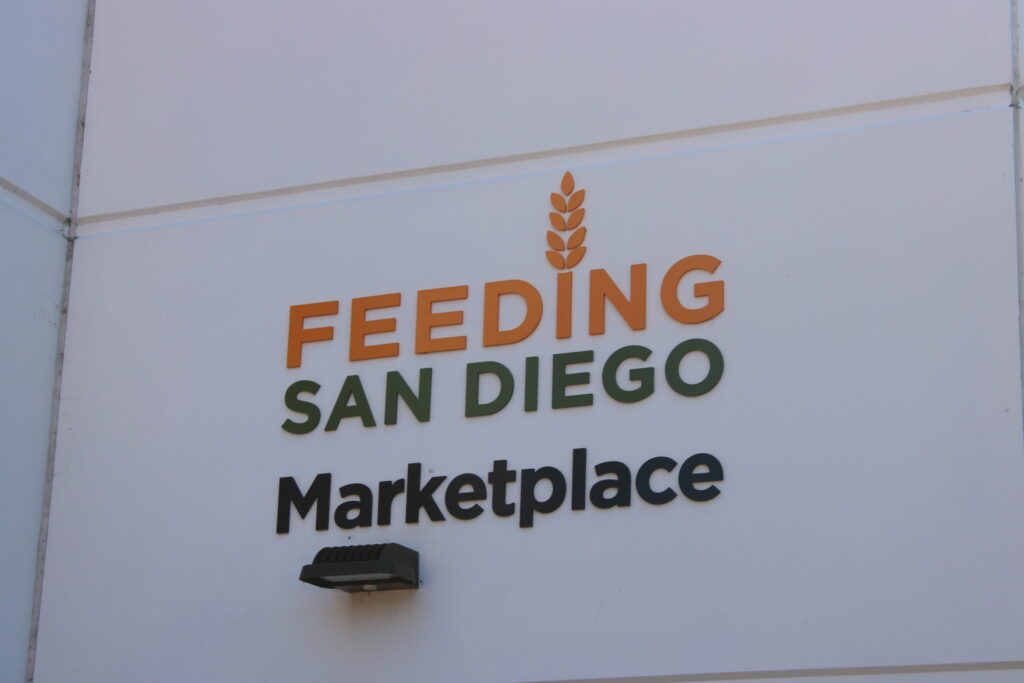In April 2022, the United Nations issued a climate report sounding the alarm for humanity. If we were to treat food waste as a hypothetical country, it would rank as the world’s third-largest producer of greenhouse gases. How? Excess food ends up in landfills, where it begins to generate methane gas–and ahead of lettuce can take up to 25 years to break down.
In response, California State Bill 1383 (SB1383), passed in 2016 by Gov. Jerry Brown, set ambitious goals to reduce organic waste disposal in the state by 75 percent by the year 2025, with 20 percent of edible food waste earmarked for rescue for human consumption or composting.
SB 1383 set rolling deadlines for compliance for commercial edible food generators; the final deadline is approaching on Jan. 1, 2024. With this date on the horizon, California food banks see an influx of opportunity to ease food insecurity and fight greenhouse gas generation–and are requesting the agricultural supply chain to help them.
Food donation facilitators, like Feeding San Diego, have all the necessary tools to help businesses be compliant with SB 1383. “The reason why donors like to work with us is because we really are focused on food safety,” said Patty O’Connor, Chief Supply Officer of Feeding San Diego, a member of Western Growers. “We train the donors on what they can and cannot donate. Then on the other side, we also do food safety training with our agency partners.”
Pickups can come from growers, packers, shippers and grocery stores, and many of those donations go directly to faith organizations, shelters, and schools to stock their food pantries. “We manage 860 pickups a week, so every day that’s 123 pickups,” she said.
A staggering 34 million Americans grapple with food insecurity, according to the USDA. Food insecurity, defined as having inconsistent or inadequate access to food, takes a toll on individuals in numerous ways. Beyond affecting overall well-being, it results in poor school attendance and performance among youth and subpar workplace productivity and demeanor in adults.
Roughly 80,000 children in San Diego County are suffering from food insecurity at home, impacting their ability to do what they do best: be a kid. FSD partners with school pantries to ensure that children have enough to eat while on school grounds, but also ensures that they have the opportunity to bring something back to help feed their families at home. “We do provide basic staples, like rice and beans; we [also] provide at least four to five different types of fresh produce,” she said.
Not only is Feeding San Diego working tirelessly to act as the middleman in the food rescue process for over 297 grocery stores, but they are also managing their Marketplace right on site. Here, members of the community are free to shop for food necessities for their households once a month, at no cost.
During a recent visit to the Feeding San Diego Marketplace, the opportunity arose to speak with Zenaida Batuyong, a lovely woman who was doing her monthly shopping. Batuyong was extremely thankful for the benefits and nutrients offered to her through the Marketplace. She actively drives herself and some friends, ensuring they have access to fresh and healthy food at an affordable rate.
All of this is done with close attention being paid to food safety. Feeding San Diego takes a meticulous approach to donor training, providing food safety training to partners playing a critical role in picking up and distributing rescued food. Donors working with FSD receive guidance on all steps in the process, ranging from appropriate storage conditions to how to glean your inventory, as well as tools like temperature pens and freezer blankets.
In 2022 alone, Feeding San Diego diverted 27,000 metric tons of CO2 from the atmosphere, which is the equivalent of taking 6,000 cars off the road. The organization has been recognized by their local UN chapter for their sustainability efforts.
For O’Connor, food rescue is more than just a job; it’s a legacy passed down through her family. While volunteering at a food pantry, her father, Joe O’Connor, noticed a troubling abundance of food waste in their local area. Joe’s simple observation led to a lifelong commitment to picking up surplus food seven days a week. Following in her father’s footsteps at Feeding San Diego, she works for an organization with a mission that goes beyond words on paper: “Help End Hunger Through Food Rescue.”
The Feeding San Diego team has the tools to make compliance with SB 1383 easy for your business and would love to hear from you! If you’re interested in becoming a food donor to Feeding San Diego, [email protected].


